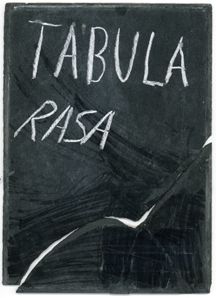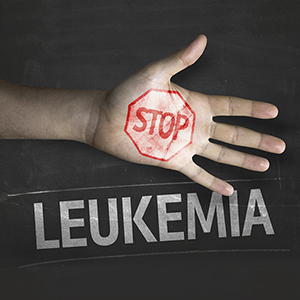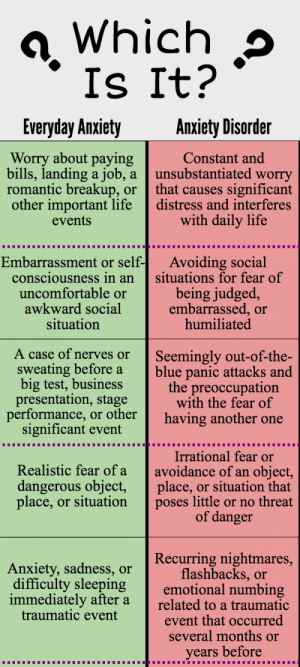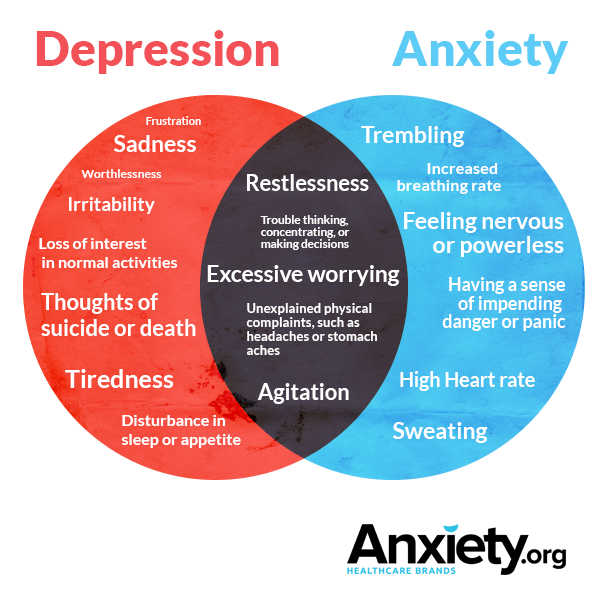
What are the signs of anxiety and depression? What is the difference between depression and anxiety? Depression and Anxiety Disorders: Not the Same.
But each disorder has its own causes and its own emotional and behavioral symptoms. Anxiety may occur as a symptom of clinical (major) depression. Many people have a diagnosis of both an anxiety disorder and clinical depression.
Bipolar disorder, a condition in which emotions can swing from very low to very high levels of mania and depression , is treated much differently than anxiety disorder with depression. Generalized anxiety disorder includes persistent and excessive anxiety and worry about activities or events — even ordinary, routine issues. The worry is out of proportion to the actual circumstance. Anxiety disorders and depression were once classified under a group of mental disorders called neuroses.

Mixed anxiety-depressive disorder is a mental health disorder characterized by symptoms of both depression and anxiety. Recognition of mixed anxiety-depressive disorder as a mental health disorder is relatively new. It causes severe symptoms that affect how you feel, think, and handle daily activities, such as sleeping, eating, or working. However, the combination of depression and an. To be diagnosed with depression , the symptoms must be present for at least two weeks.
Private Professional Counseling Anytime, Anywhere. Clinically Proven to Naturally Relieve Anxiety in Minutes. Which Company Is Disrupting a $4Billion Dollar Industry? Read our Report and Find Out! Neurosis was a term for mental disorders characterized by distress but without changes in personality and major disturbances in perception.

Occasional anxiety is an expected part of life. You might feel anxious when faced with a problem at work, before taking a test, or before making an important decision. But anxiety disorders involve more than temporary worry or fear.
For a person with an anxiety disorder , the anxiety does not go away. Other types of anxiety disorders include separation anxiety , panic disorder , or phobias, among others. If you compare the two lists of symptoms, you can see that there is some overlap. Sleep problems, trouble concentrating, and fatigue are all symptoms of both anxiety and depression.
Irritability may also manifest in forms of anxiety or. The anxiety disorders include generalized anxiety disorder , specific phobia, social phobia, agoraphobia, and panic disorder. In addition to the specific symptoms of these disorders, there may be a common experience of anxiety and even dysphoria across.
Being depressed often makes us anxious, and anxiety often makes us depressed. An eating disorder diagnosis can be challenging enough on its own, and many individuals have other issues that can accompany the eating disorder. Anxiety , depression , and obsessive-compulsive disorder (OCD) are just a few additional mental health diagnoses that frequently co-occur with eating disorders. Can depression cause social anxiety disorder ? Or is the reverse true, and being socially anxious causes you to become depressed? Given the close relationship between these disorders, it is natural to ask questions about why you feel depressed if you are socially anxious, or why you may become socially anxious if you are depressed.

Studies show that between and of adults in any given 12-month period will visit their primary care physician during a depressive or anxiety disorder episode, and that nearly of them will suffer from a co-morbi secondary depressive or anxiety disorder. The symptoms of anxiety can be hard to detect. Online Therapy with a Licensed Counselor. Available Anytime, Anywhere You Need It.
The Time is Now to Put Yourself First.
No comments:
Post a Comment
Note: Only a member of this blog may post a comment.